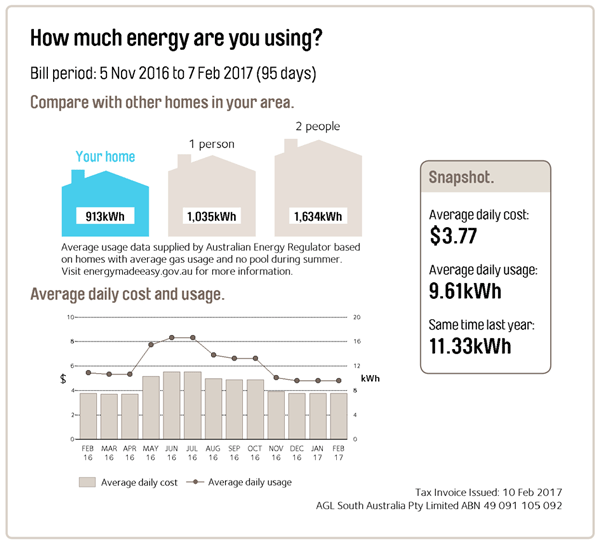What Size Solar Battery Do I Need? A Comprehensive Guide
Choosing the right solar battery is a crucial decision that impacts both the performance of your solar system and your wallet. By the end of this comprehensive guide, you’ll clearly understand solar batteries, energy usage, and the factors to consider when selecting the ideal solar battery size for your needs.
Short Summary
- Understanding solar batteries requires knowledge of the location, energy production and consumption, and consulting an accredited installer.
- Determining your energy usage is key to selecting the right size battery. Peak and off-peak electricity use should also be taken into account.
- Consult experts like Central Coast Energy for tailored solutions
Understanding Solar Batteries

Solar batteries play a vital role in maximizing the efficiency of your solar panel system by storing excess energy generated by the solar panels for later use. Determining the appropriate solar battery size is essential to optimize your investment and enjoy the full benefits of your solar power system.
Several factors must be considered when selecting the right solar battery size, such as location, positioning of solar panels, energy production and consumption, and the size of your solar panel array. To ensure an accurate assessment of your solar PV system and the appropriate battery size, it is advised to consult an accredited solar installer.
Types of Solar Batteries
When considering a solar battery storage system, one might wonder how many solar batteries are needed. There are two primary types of solar batteries used in a solar battery storage system lead-acid and lithium-ion batteries. Lead-acid batteries are typically more economical than lithium-ion batteries, but they have a reduced Depth of Discharge and require a larger number of batteries to store an equivalent amount of energy.
On the other hand, lithium-ion batteries, although more costly, boast a higher depth of discharge and require fewer batteries to store the same amount of energy. The decreased Depth of Discharge of lead-acid batteries means you may need more of them than lithium-ion batteries to achieve the same storage capacity.
Battery Capacity and Efficiency
The capacity of a battery in a solar power system is expressed in kilowatt-hours (kWh), which represents how much electricity the battery can store. On the other hand, efficiency is determined by the depth of discharge (DoD) and round-trip efficiency, which are crucial factors when determining the size solar battery needed for your system.
Understanding these measurements will help you make an informed decision when selecting the ideal solar battery size to meet your energy storage needs.
Determining Your Energy Usage

Analyzing your energy usage is essential when selecting the appropriate solar battery size, as peak and off-peak usage are of considerable relevance and will determine how many batteries are needed for optimal performance. You can ascertain your energy usage by examining your energy bill and calculating your average daily usage or by utilizing an intelligent energy meter.
Knowing your average daily energy consumption will help you make an informed decision when choosing the right solar battery size.
Peak and Off-Peak Usage
Peak energy usage refers to the time of day when the grid is experiencing heightened demand for electricity, typically between 3pm and 9pm on weekdays. During this time, electricity usage is charged at a higher rate than during off-peak hours.
Off-peak usage generally occurs during the morning and night hours on weekends. Comprehending these patterns is essential to optimize solar battery usage and ensure that you get the most out of your solar power system.
Factors to Consider When Choosing a Solar Battery Size
When selecting a solar battery size, there are several factors to consider, including the purpose of the solar battery, the solar panel system size, and your budget. Understanding the motive behind purchasing a solar battery is advantageous in determining which one to acquire. For example, if your goal is to achieve energy autonomy, a large battery with a capacity of no less than 10kWh is necessary.
The size of the solar battery should be proportional to the size of the solar panel system. If the solar panel system is too small, the battery will not be able to store enough energy to meet the needs of the system. On the other hand, the other hand.
Purpose of Solar Battery
The purpose of a solar battery can range from diminishing dependence on the grid to providing reserve power during power outages. A solar battery can provide advantages such as peace of mind in the event of a power outage, reduced dependence on the grid, and a diminished carbon footprint.
Some households acquire battery storage to become more energy independent, while others seek a large battery to achieve energy autonomy. When considering what battery do I need, it is recommended to have at least a 10-14kWh battery for eliminating electricity bills.
If the purpose is to provide backup power during outages, a solar battery with backup capabilities is more important than one with a large storage capacity.
Solar Panel System Size
Solar panel system size plays a crucial role in determining the amount of energy generated and the consequent required battery capacity. The size of a solar panel system is typically measured in kilowatts (kW) and refers to the amount of power it can generate.
The physical dimensions of a solar panel system can vary depending on the number and size of the panels employed, but a typical residential solar panel measures 170cm by 100cm. When selecting a solar battery size, it is essential to take into account the size and output of your current solar system.
Budget and Incentives
Budget considerations encompass initial expenses, potential incentives, and long-term savings. Financial capacity plays a crucial role in determining the optimal solar battery size. Factors affecting the cost of solar batteries include the size and brand of the battery, the solar installers employed to execute the task, and any additional work necessary to make the battery compatible with your system, such as the installation of an additional inverter.
Some state governments provide rebates and incentives to help offset the initial cost of solar batteries. It is important to research and compare various options to find the most suitable solar battery solution at the best price.
How to Calculate the Ideal Solar Battery Size
Calculating the ideal solar battery size involves using online calculators and analyzing existing solar panel systems. These calculators utilize the magnitude of your solar system and your roof in conjunction with a mean daily energy consumption to estimate the appropriate battery capacity.
Understanding how to calculate the ideal solar battery size will help you make an informed decision when selecting a solar battery that meets your energy storage needs.
Solar and Battery Size Calculators
Solar and battery size calculators are valuable tools that provide estimates of the size of a solar and battery storage system, as well as potential weekly and annual savings. By inputting your daily electricity usage and usage patterns, these calculators can help you determine the number of panels and battery sizes required for your solar power system.
For example, Energy Matter’s solar and battery storage calculator is a user-friendly tool that offers such estimations. It provides an easy-to-use interface that allows you to input your electricity usage and usage patterns, and then provides an estimate of the size of the solar and battery storage system you need, as well as the energy stored potential, weekly and annual savings.
Tips for Existing Solar Panel Owners
Existing solar panel owners should consider their average energy consumption, the size and output of their current solar system, and the size of their solar panel array when selecting a solar battery size. The optimal approach for existing solar panel owners to size a battery is by utilizing a solar battery storage calculator, which takes into account their current system’s capacity and energy usage patterns.
This calculator can help them determine the size of the battery they need to store the energy generated by their solar system, as well as the amount of energy they can expect to save by adding a battery to their system. With this information, they can make an informed decision about the future.
Recommended Solar Battery Sizes for Common Solar Panel Systems
Recommended solar battery sizes vary depending on the solar panel system size. Redback & Sungrow batteries are both great for a 5kW system. They offer reliable energy storage and ensure the best performance in nominal conditions.
By understanding the relationship between solar panel system size and solar battery size, you can ensure that you select the most appropriate solar battery to meet your energy storage needs.
Top Solar Battery Brands
Top solar battery brands like Redback, Sungrow, SonnenCore+, and LG Chem RESU offer reliable and efficient energy storage solutions for various solar panel system sizes. These brands provide features such as high energy density, long life cycles, and advanced safety features to ensure optimal performance.
By researching and comparing the various brands and their offerings, you can make an informed decision when selecting the best solar battery solution for your needs.
Consulting Solar Battery Experts
Consulting solar battery experts can help ensure the best solar battery solution for your needs. Solar battery experts can provide valuable insights and tailored advice based on your specific energy usage patterns and solar panel system.
By seeking professional advice, you can make a more informed decision when selecting the right solar battery size.
Summary
In conclusion, understanding solar batteries and their role in solar power systems is crucial to maximize your investment and ensure optimal performance. By analyzing your energy usage, considering factors such as purpose, solar panel system size, and budget, and consulting solar battery expert, you can make an informed decision when selecting the ideal solar battery size for your needs. Harness the power of the sun and store it efficiently with the right solar battery, and enjoy the benefits of reliable and environmentally friendly energy.
FAQ's
To determine the size of solar battery you need, consider the kW output of your solar PV system and your daily energy consumption. Depending on those factors, you should be looking at a 4 kWh or 8 kWh battery to maximize returns or a 35 kWh or 65 kWh battery to maximize energy independence.
A 10 kW battery is sufficient to keep your house powered for a day’s worth of usage. With some strategic planning and energy conservation, this could be an ideal solution for your power needs.
By taking advantage of the battery’s capacity, you can ensure that your home is always supplied with the energy it needs. You can also use the battery to store energy from renewable sources, such as solar panels.
Accurately selecting the right solar battery size is a critical part of any solar power system, as it ensures maximum efficiency and capacity.
The size of the battery will depend on the size of the solar panel array, the amount of energy you need to store, and the type of battery you choose. It is important to consider all of these factors when selecting the product.
When selecting a solar battery size, it is important to consider the purpose of the battery, as well as the size of the solar panel system and budget. It is essential to evaluate all these factors and select a battery size that best meets individual needs.
To determine your energy usage, you can examine your energy bill and work out an average daily consumption rate or use a smart meter.
By following these simple steps, you can gain a better understanding of your energy usage.








